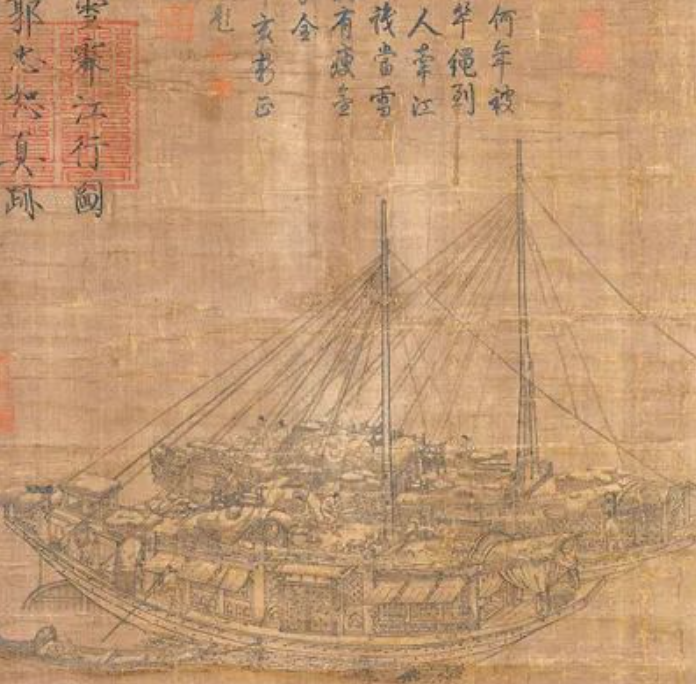History is full of dramatic emperor-on-the-run sagas. Picture a desperate monarch, loyal ministers by his side, and enemy soldiers hot on their heels. These escape stories often set the stage for a great comeback, a second act where the fallen empire rises again. But if we talk about China’s most unique fleeing emperor, one man stands above the rest—Zhao Gou, the first and only Chinese emperor to spend months drifting at sea to escape his enemies.
This is the story of how the future Southern Song dynasty was born not on land, but on the waves.
Fleeing Like No Emperor Had Before
Zhao Gou, later known as Emperor Gaozong of Song, had a rough start. In 1127, the Song dynasty suffered a catastrophic defeat in the Jingkang Incident—Kaifeng, the capital, fell to the Jurchens of the Jin dynasty, and the reigning Emperor Huizong and his son were taken captive. Young Zhao Gou was one of the few imperial family members who managed to escape. With nowhere safe to go, he fled south and declared himself emperor.
But being an emperor without a kingdom was no easy task. The Jurchens were relentless. By 1129, their feared general Wanyan Zongbi (also known as Jin Wuzhu) led a ferocious invasion southward, forcing Zhao Gou to keep running. He moved from Nanjing to Hangzhou, then further to Ningbo, Taizhou, and Wenzhou. But when the Jin army continued to press forward, the emperor made a bold decision—he would take to the sea.
And so began one of the most remarkable survival stories in Chinese history.

The Emperor’s Floating Kingdom
At first glance, fleeing by sea seems like an act of desperation. But thanks to centuries of naval development, the Song dynasty had something the Jurchens didn’t—a formidable navy. Unlike the northern cavalry-focused Jin army, the Song court had access to advanced ocean-going ships, many of which were built in Fujian and Guangdong. These ships weren’t just ordinary riverboats; they had watertight bulkheads, strong hulls, and the ability to sail through rough ocean waves.
Zhao Gou’s escape wasn’t a lonely one. A fleet of nearly a thousand ships was gathered to protect him. These vessels were filled with guards, ministers, servants, and supplies. It was less of a simple getaway and more of a floating palace—a “Sea Court” unlike anything seen before in Chinese history.
Jin Wuzhu, determined to capture the runaway emperor, didn’t stop at land. His forces pursued Zhao Gou into the ocean, leading to a dramatic showdown at sea. But the Jin soldiers were outmatched—while they had some boats, they were mostly flat-bottomed riverboats, no match for the sturdy Song warships. When Jin forces attempted to board, the Song navy, under commanders like Zhang Gongyu, crushed their attempts. The Jin were forced to retreat, and Zhao Gou, for the first time in years, was truly safe.
How the Ocean Saved the Song Dynasty
Zhao Gou’s months at sea weren’t just about survival—they changed the fate of his dynasty. The experience taught him a crucial lesson: the Song’s best defense wasn’t the mountains or rivers, but the sea.

Instead of trying to retake the north, Zhao Gou focused on fortifying the south and securing sea routes. This led to major developments in:
- Naval Expansion – The Song dynasty created a permanent navy, with thousands of trained sailors and advanced warships. The Southern Song would later become China’s first true maritime power, pioneering shipbuilding techniques that would influence Asian naval warfare for centuries.
- Economic Growth through Trade – With the north lost to the Jurchens, the Song turned toward maritime commerce. Ports like Quanzhou, Guangzhou, and Ningbo became bustling international trade hubs. The Southern Song embraced oceanic trade like never before, making sea commerce one of its biggest revenue sources.
- Strategic Shift in Governance – Having experienced the terror of land-based invasions, Zhao Gou chose to build his capital in Hangzhou, a city close to the sea for easy escape if needed. This decision shaped the Southern Song’s entire defense strategy—rather than a land empire, it became a coastal stronghold, leveraging both river and sea for protection.
A Dynasty Shaped by the Waves
Zhao Gou’s “ocean adventure” may have started as an escape, but it became the foundation for an empire. By focusing on naval power, economic trade, and strategic relocation, he ensured that the Song dynasty would survive—though much smaller than before, it remained a cultural and economic powerhouse for another 150 years.
It’s ironic that the emperor who spent months running away at sea ended up being the father of China’s first true naval dynasty. But history has a way of rewarding bold choices, and Zhao Gou’s seafaring escape wasn’t just about survival—it was the moment China discovered the power of the ocean.
So the next time you look at a map of ancient China, remember: one emperor, against all odds, turned the sea from a mere escape route into a lifeline for his empire. And that made all the difference.

No comments yet.